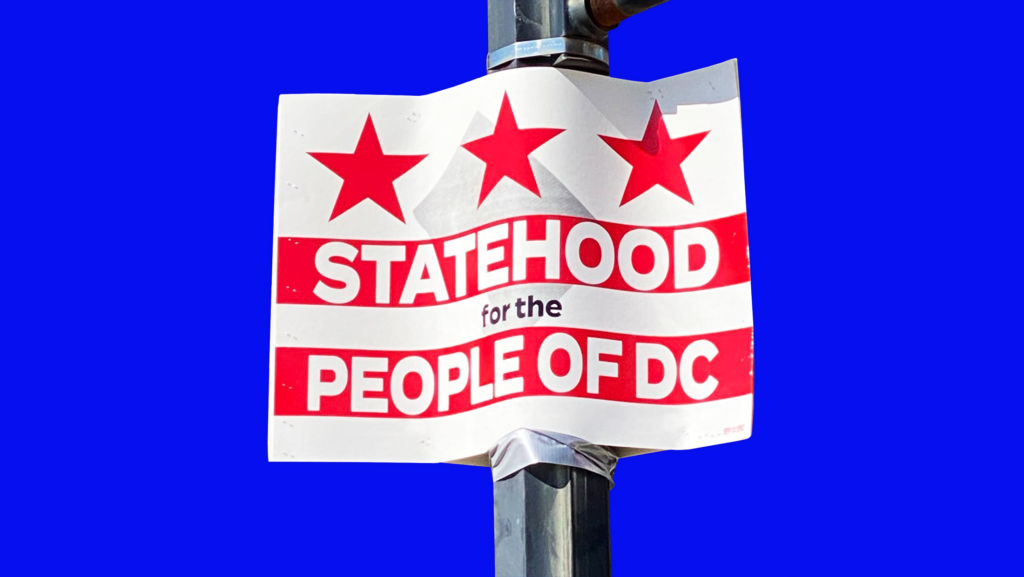Washingtonians Demand What We are Owed

Going into last month’s hearing on H.R. 51, the Washington, D.C. Admission Act, I expected to hear many of the same bad-faith arguments against D.C. statehood that we hear time and time again.
I expected to hear, for example, that D.C. statehood is unconstitutional, even though constitutional experts have refuted this claim. As H.R. 51 makes clear, our path to statehood is constitutional because a “federal district” will remain for the federal government, its buildings and its workings; the rest of the area, where more than 700,000 people live, will become the 51st state.
I expected to hear that Washington, D.C. is too small and that our economy is not diverse enough, even though we’re bigger by population than two states and pay more per capita in federal taxes than every state.
And I expected to hear that Washington, D.C. can’t take care of itself. Of course, this is simply not accurate. In fact, by many objective measures, D.C. is a better governed jurisdiction than most states. We have balanced our budget 25 times in the last 25 years. We already operate as a state and perform the same functions that states do, and we are treated like a state in more than 500 citations in federal law.
However, I was surprised by some of the new arguments that we heard. Like many Americans, I didn’t expect to hear concerns about how many car dealerships D.C. has, or to get questions about whether D.C. has any mines, forts or landfills. I certainly didn’t expect to hear that D.C. residents don’t need statehood because our ability to put up lawn signs already gives us influence in Congress.
The disenfranchisement of Washingtonians is one of the most glaring civil rights and voting rights issues of our time. And by now it is clear: D.C. statehood is the only way to ensure American citizens living in Washington, D.C. have full representation in Congress and full access to our nation’s democracy.
But there’s a reason why the arguments against D.C. statehood are getting worse: there is no good or democratic defense of taxation without representation. Our nation was founded on this principle. Even the Founding Fathers recognized the dilemma of disenfranchising American citizens living in the nation’s capital — they just never figured out a solution. But that doesn’t mean there isn’t one. The solution is what 86% of D.C. voters voted for in 2016: to carve out a federal enclave and make the residential part of Washington, D.C. our nation’s 51st state.
The disenfranchisement of Washingtonians is one of the most glaring civil rights and voting rights issues of our time. And by now it is clear: D.C. statehood is the only way to ensure American citizens living in Washington, D.C. have full representation in Congress and full access to our nation’s democracy.
Of course, like many civil and voting rights issues, D.C. statehood is also a racial justice issue. Originally, the disenfranchisement of D.C. residents was a problem that the founders sought to fix. Over time, however, as Black people gained more rights, including citizenship and the right to vote, disenfranchising the residents of Washington, D.C. became a way to suppress Black political power. I urge you to learn more about this by reading the report I submitted with my testimony: Democracy Deferred: Race, Politics, and D.C.’s Two-Century Struggle for Full Voting Rights.
It is true that we are more brown and more liberal than some other states, but denying statehood would be unfair no matter who was affected — it would be unfair if we were conservatives from a rural district built around agriculture or an industrial city in the heartland. It would be unfair if we had a car dealership on every corner or if we had no dealerships at all.
So, we go forward, inspired by the words of Frederick Douglass: Power concedes nothing without a demand. As Washingtonians and as tax paying American citizens, we are not asking for special treatment, we are demanding what is owed to us — the rights guaranteed to us by the U.S. Constitution.
Power concedes nothing without a demand. And statehood is our demand.
Muriel Bowser is the mayor of Washington, D.C. and has held the office since 2015.